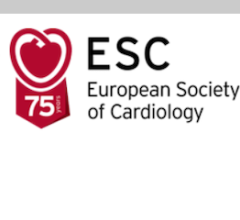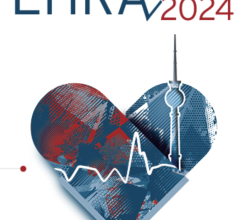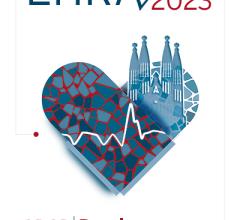
September 21, 2021 — The European Society of Cardiology (ESC) Guidelines for the diagnosis and treatment of acute and chronic heart failure are published online today in European Heart Journal.[1] This was the first ESC Guideline to include patients as full members of the task force.
Approximately 2% of adults worldwide have heart failure. Prevalence increases with age, from 1% in those under 55 years to more than 10% in people aged 70 and above. In developed countries, the most common causes are coronary artery disease and high blood pressure. Patients with heart failure have a poor prognosis and markedly reduced quality of life. The main symptoms are breathlessness, ankle swelling, and tiredness. After diagnosis, patients are hospitalized once every year on average and more than half die within five years.
Regarding diagnosis, when there is a suspicion of chronic heart failure, the guidelines recommend measuring the level of hormones produced by the heart (natriuretic peptides). If levels are normal the patient can be reassured that heart failure is very unlikely. If high, this should prompt referral for an echocardiogram to detect the underlying heart problem.
All heart failure patients are normally treated with diuretics to reduce breathlessness and ankle swelling. For heart failure with reduced ejection fraction, there are many drug treatments that improve survival, namely angiotensin‑converting enzyme (ACE) inhibitors, angiotensin-receptor neprilysin inhibitors (ARNIs), beta-blockers and mineralocorticoid receptor antagonists (MRAs). In addition, the guidelines recommend a new class of drugs, the sodium-glucose co-transporter-2 (SGLT2) inhibitors, also called gliflozins, as both dapagliflozin and empagliflozin reduce the risk of cardiovascular death and/or hospitalizations for heart failure when added to standard treatment. Some patients with heart failure with reduced ejection fraction may also benefit from devices such as defibrillators and cardiac resynchronization therapy pacemakers.
The guidelines state that no treatment has been shown to reduce mortality and morbidity in patients with heart failure with preserved ejection fraction to date.
Exercise is recommended for all capable chronic heart patients to improve quality of life and reduce heart failure hospitalization. In those with more severe disease, frailty, or comorbidities, a supervised, exercise-based, cardiac rehabilitation program should be considered. “The vast majority of drug treatments that improve survival and reduce hospitalizations also have beneficial effects on quality of life and symptoms,” said guidelines task force chairperson Professor Theresa McDonagh of King’s College Hospital, London, UK. “There are some interventions that do not impact survival but do improve quality of life and symptoms – for example exercise rehabilitation – that should also be offered to patients with chronic heart failure.”
The guidelines recommend that all patients have access to a multi-professional heart failure disease management program to ensure that their heart failure is correctly diagnosed and managed. These programs have been associated with better care and improved outcomes. In addition, patients with heart failure should be encouraged to be actively involved in managing their condition. Self-care includes adopting healthy habits such as physical activity, avoiding excessive salt intake, maintaining a healthy body weight, avoiding excessive alcohol consumption, and not smoking. It is also important to avoid drinking large volumes of fluid, recognize sleeping problems, monitor changes in symptoms, and know when to contact a health professional.
Patients with heart failure are at increased risk of infections, which may worsen symptoms and be a precipitant factor for acute heart failure. The guidelines state that influenza, pneumococcal and COVID-19 vaccination should be considered in patients with heart failure.
The guidelines provide general advice on how to prevent heart failure. This includes regular physical activity, not smoking, healthy diet, no/light alcohol intake, influenza vaccination, and treatment of high blood pressure and high cholesterol. Recommendations are also given on how to manage patients with heart failure who have co-existing conditions such as atrial fibrillation and valvular heart disease. “It is crucial to treat the underlying causes of heart failure and its comorbidities,” said guidelines task force chairperson Professor Marco Metra of the University of Brescia, Italy. “Proper treatment of high blood pressure, diabetes and coronary artery disease can prevent the development of heart failure. Atrial fibrillation, valvular heart disease, diabetes, chronic kidney disease, iron deficiency and other comorbidities frequently co-exist with heart failure and the adoption of specific treatments may have a major impact on the clinical course of our patients.”
References:


 August 29, 2025
August 29, 2025 









